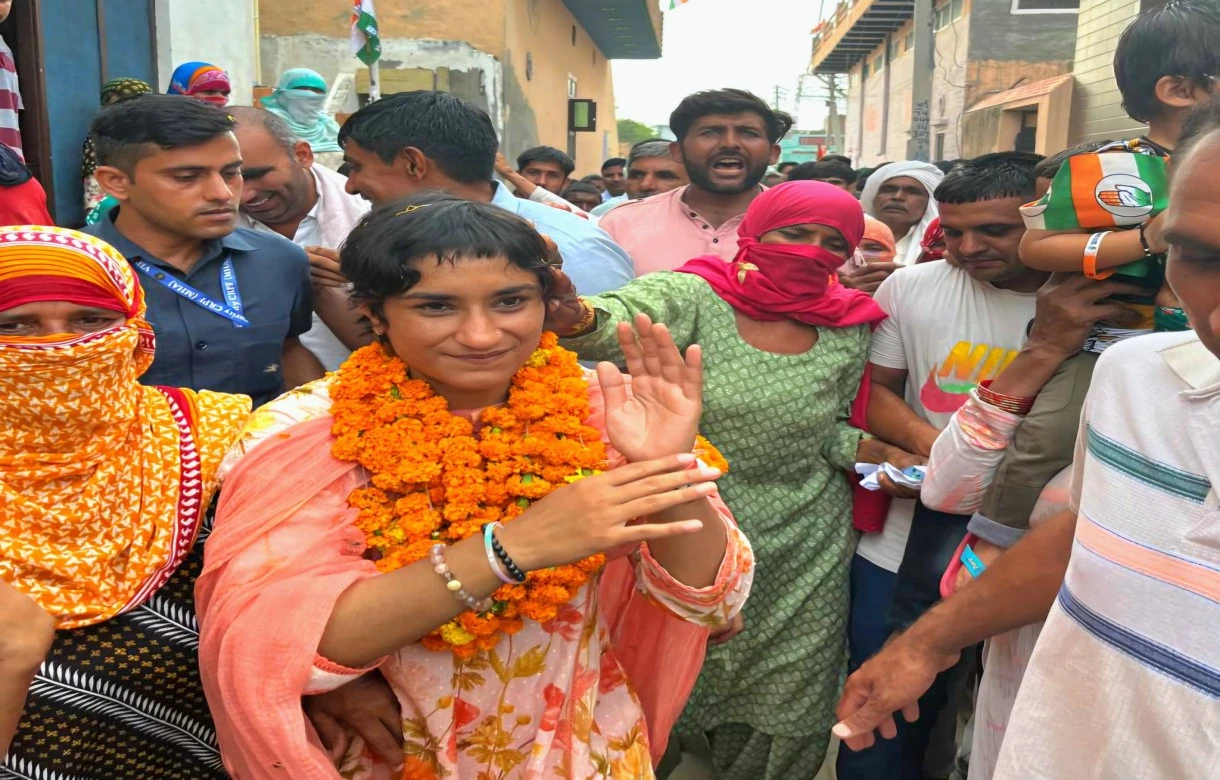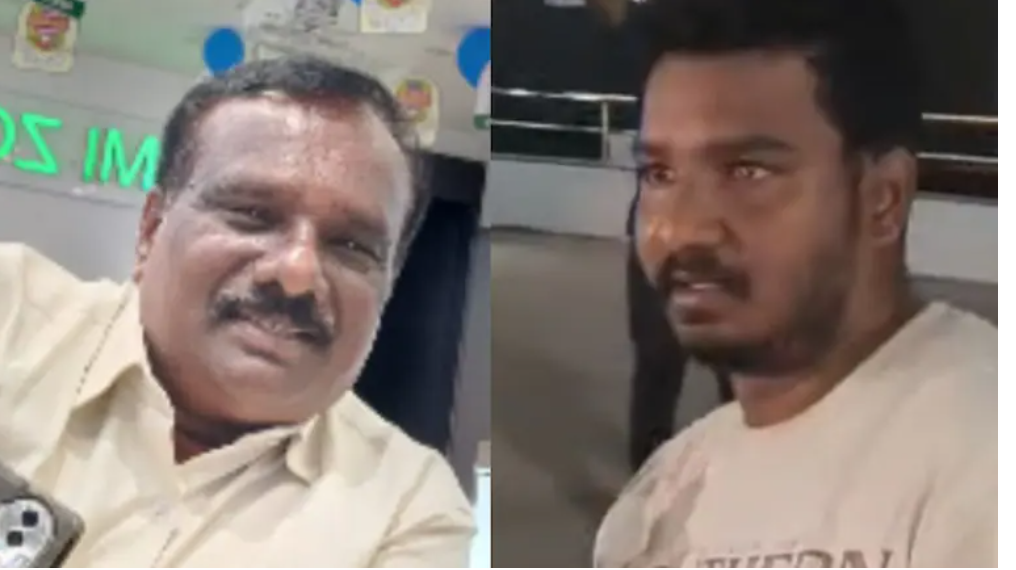Former wrestler and Congress leader Vinesh Phogat on Tuesday won the Julana constituency, by a margin of 6015 votes, in the Haryana Legislative Assembly election. She defeated BJP candidate Yogesh Kumar.
Speaking to reporters after winning the Julana seats, she said: “This is the fight of every girl, every woman who chooses the path to fight. This is the victory of every struggle, of truth. I will maintain the love and trust that this country has given me.”
“Now that I have entered here, I will continue here. People have given me their love, I will have to work for them on ground. It is not possible to work on both simultaneously (politics and wrestling),” Phogat added.
On Congress trailing in the Haryana elections, Phogat requested to wait a little as the complete results have not yet come. “When we get the final certificate, results will be in our favour,” she said.
On her victory, wrestler Bajrang Punia congratulated the former Olympic wrestler and said the fight was not just for one Julana seat, it was not just with 3-4 other candidates, it was not just a fight between parties but the fight was against the strongest oppressive forces in the country.
“Many congratulations to the country’s daughter Vinesh Phogat for her victory. This fight was not just for one Julana seat, it was not just with 3-4 other candidates, it was not just a fight between parties. This fight was against the strongest oppressive forces in the country. And Vinesh emerged victorious,” he said in a post on X.
Meanwhile, BJP leader Brij Bhushan Sharan Singh, as the party appears set for a record third term in the state, said: “I would like to thank the people of Haryana. Many efforts were made to mislead the people of Haryana in the name of protests of farmers and wrestlers. However, people have praised the policies of BJP.”
Former Chief Minister and Congress candidate from Garhi Sampla-Kiloi, Bhupinder Singh Hooda, alleged that he has the inputs that counting is being stopped at several places. “We are getting the majority. This is a game, the ball is sometimes here, sometimes there but we will do the final goal,” he said.
“As per the input I have with me, we are touching the majority. Congress is getting the majority. There are several seats that we have won…but the same is yet to be updated,” the senior Congress leader said.
Responding to Congress leader Jairam Ramesh over his memorandum on the display of results on the EC website, the Commission said it unequivocally rejects the Congress’s attempt to surreptitiously give credence to irresponsible, unfounded and uncorroborated malafide narratives.

























